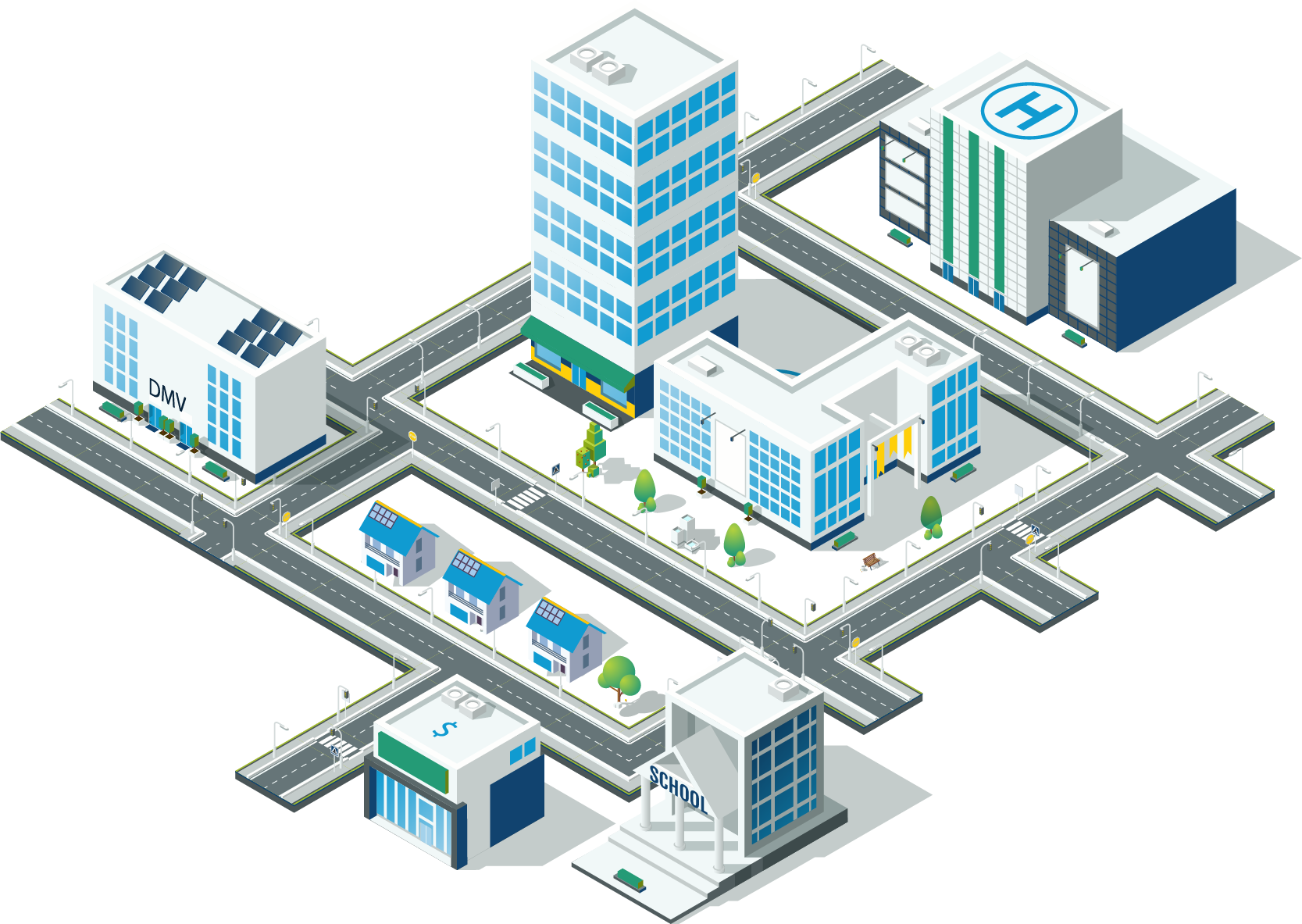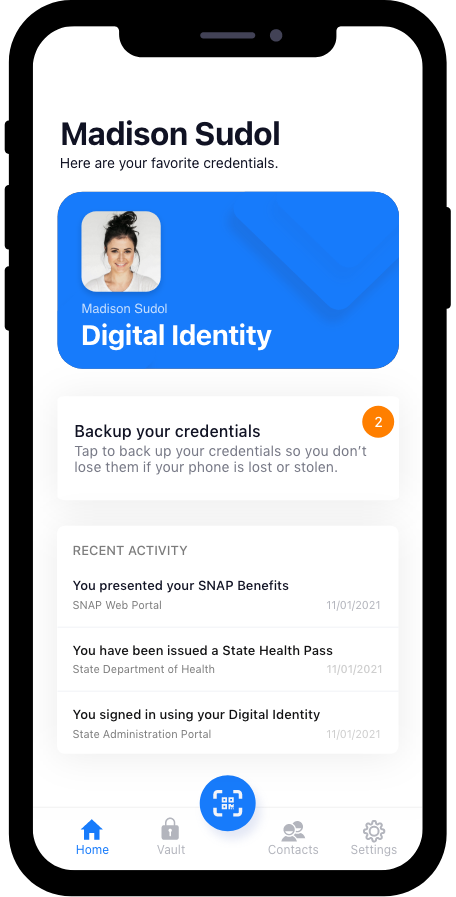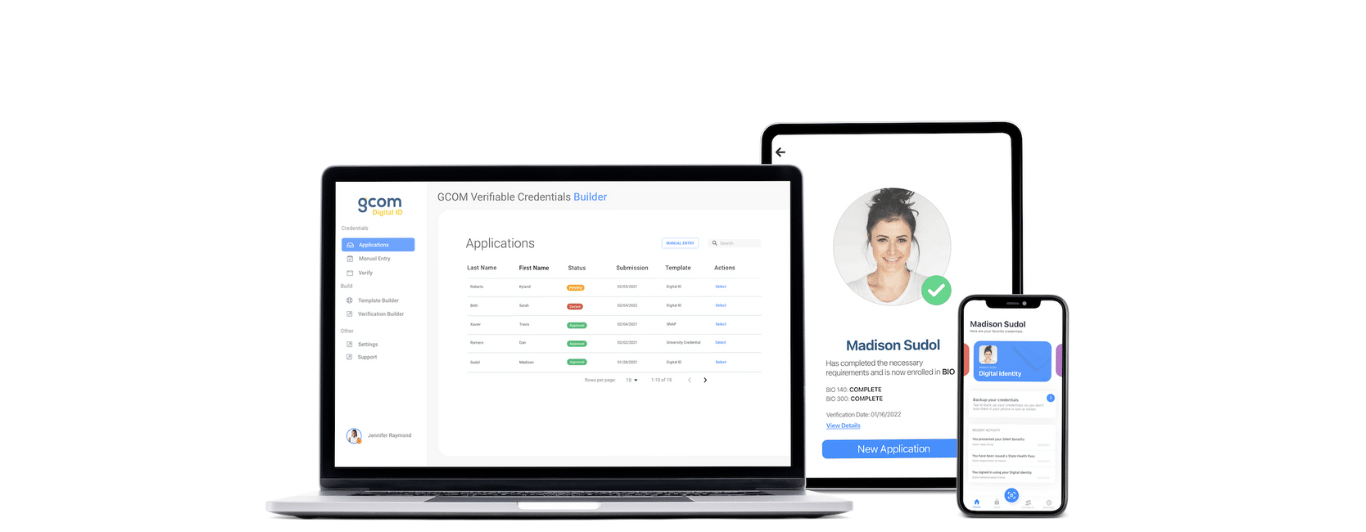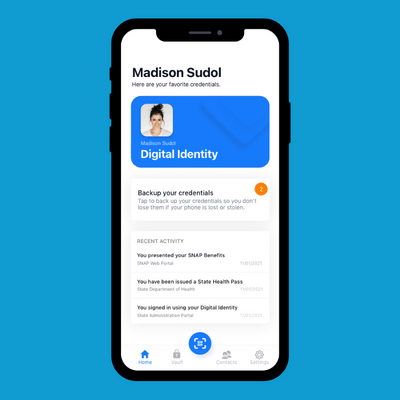The first resident-controlled decentralized identity platform designed for government.
Decentralized Identity for Government (DIG) is a self-sovereign identity solution designed exclusively for state and local governments. With DIG, governments can streamline and simplify service delivery without the risks of centralized data storage.
Decentralized Identity: Less Risk, Less Fraud, Less Paperwork

Traditional Centralized Identity
Residents’ personally identifiable information (PII) is stored in centralized government databases.
Each interaction with the government requires redundant paperwork and weeks of back-and-forth communication.
Manual identity verification processes are costly and highly susceptible to fraud.

Voyatek Decentralized Identity
Residents own and control their own data. Data is never stored by government agencies or Voyatek.
Credentials are verified instantly, can be trusted indefinitely and are usable across government agencies.
Verification occurs on the distributed ledger, making identity theft virtually impossible.
One platform, unlimited applications
Hover over the icons below to learn more about DIG’s many use cases.

Designed Exclusively for State and Local Government
Leveraging distributed ledger technology, our framework allows government agencies to independently verify residents’ personal information without storing or managing any data.
With DIG, agencies can
- Validate Information in Minutes, Not Weeks – Credentials are verified once when issued and can be trusted indefinitely. Government agencies can trust that they’re engaging with the right person, eliminating the need for paperwork or manual verification.
- Reduce Costs – Significantly decrease the amount of time, resources, and funds dedicated to verifying resident information or strengthening database security.
- Prevent Fraud – The distributed ledger verification makes true identity theft nearly impossible, so residents’ privacy is more protected than ever.

Increase Security without Increasing Costs
Collecting, validating, and storing massive amounts of residents’ personal information makes state and local governments a prime target for ransomware attacks and hacking attempts.
DIG eliminates the most pressing security risks through its decentralized data storage model.
Since agencies are no longer storing vast amounts of PII for the residents that they provide services to, there’s little incentive for cyber attackers to hack into an agency’s systems. Thus, DIG can minimize the threat of ransomware payouts and reduce the hundreds of billions of dollars agencies spend on cybersecurity and database management.








